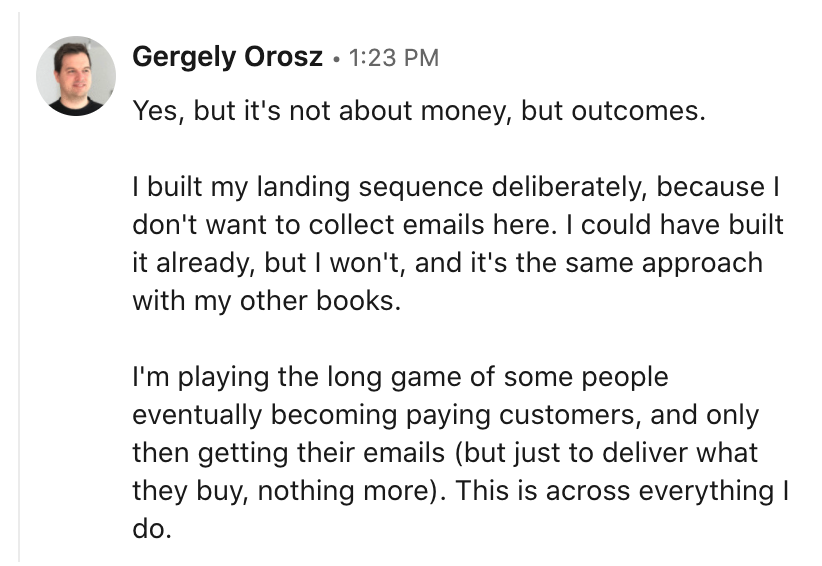
Time to rethink the live coding interview for any company wanting to hire women, from underrepresented groups and those with performance anxiety.
Don't take it from me. Take it from @cherthedev, @gurlcode, @erinfoox, and dozens of other engineers who shared the same in private.
Don't take it from me. Take it from @cherthedev, @gurlcode, @erinfoox, and dozens of other engineers who shared the same in private.

Take it from @cherthedev. Read the whole thread and the responses:
https://twitter.com/cherthedev/status/1461774310868062208?s=20
Take it from @gurlcode and @erinfoox. Listen to the episode on how interviewing is like and the unnatural expectations live coding created: anchor.fm/single-threade…
A woman engineers shared: "They expressed it so much better than I could have ever. And I feel the same."
A woman engineers shared: "They expressed it so much better than I could have ever. And I feel the same."
Take it from the first hand experiences of so many developers of all backgrounds who all freeze on these interviews:
https://twitter.com/Aliofonzy43/status/1463986484218941447?s=20
https://twitter.com/ajpinedam/status/1464020818258767882?s=20
https://twitter.com/channingwalton/status/1463986784594022400?s=20
https://twitter.com/sabfon91/status/1464129836755136518?s=20
https://twitter.com/deepu105/status/1463993924041822210?s=20
Finally, take it from me: a hiring manager who had been doing live coding interviews for years
It now all clicks. The people who had years of experience, yet inexplicably froze and whom I rejected.
Looked a few of them up on what they do now. Wow. They can code... what a miss.
It now all clicks. The people who had years of experience, yet inexplicably froze and whom I rejected.
Looked a few of them up on what they do now. Wow. They can code... what a miss.
Take it from researchers - from NC State University who ran and published a study with 48 participants. They're the first such study I am aware of and the results are damning, but also in-line with all the stories and anecdotal evidence.
The study: news.ncsu.edu/2020/07/tech-j…
The study: news.ncsu.edu/2020/07/tech-j…

Take it from people working at FAANG who did hundreds of interviews, then bombed it when it came to them interviewing.
Or the person who got bad news on the day of the Facebook interview so bombed it but got the Google offer from another day.
news.ycombinator.com/item?id=238480…
Or the person who got bad news on the day of the Facebook interview so bombed it but got the Google offer from another day.
news.ycombinator.com/item?id=238480…

I was waiting for this: "practice more until you get better at it."
Be my guest: keep interviewing at your team/company with this mentality.
What I'm saying: don't be surprised you reject/miss out on perfectly qualified applicants, disproportionately in underrepresented groups.
Be my guest: keep interviewing at your team/company with this mentality.
What I'm saying: don't be surprised you reject/miss out on perfectly qualified applicants, disproportionately in underrepresented groups.

• • •
Missing some Tweet in this thread? You can try to
force a refresh






